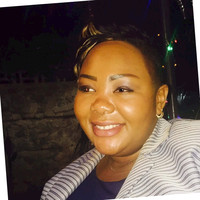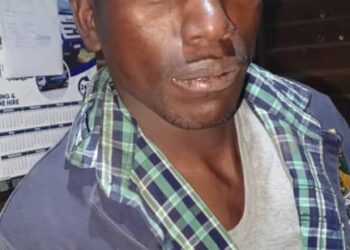Humour, friendship and a bit of “organised chaos” are the ingredients that have kept Umhlobo Wenene FM’s iBreakfast Eyondlayo Ekuseni (BEE) going and made it Mzansi’s second biggest radio show on SABC radio.
Led by host Phiwe “Pastor” Nozewu, news reader Mafa Bavuma and sport presenter Mluleki Ntsabo, BEE, is this month celebrating 14 years in the business, a special fit that this has been hosted by the same team in these years. BEE currently enjoys 1.4-million daily listenership, second best after uKhoziFM’s Vuka Afrika Breakfast Show.
“We joke a lot in our show and we are authentic despite our different characters, I’m just a ‘guy next door’, Mlu [Ntsabo] is a serious sporty guy and Mafa [Bavuma] is a joker who loves to laugh. We all bring our different characters into the show. Nothing is staged or scripted and the glue that has kept us together is our quest for excellence,” Nozewu told Sowetan yesterday.
He said even though they barely spent time together outside the studio, they had formed strong friendships that had kept them together.
“I call the show an organised chaos because everything is unscripted. There are notes that we make about things happening around us. A lot of our listeners come from rural areas and mostly, it is senior citizens who never went to school. But they still want to be informed and it is our job to provide them with trusted and accurate news daily. But we deliver them with a lot of humour.”
Nozewu said some of the features that had made the show popular beyond the Eastern Cape, where they broadcast from, included imihlinzo – a segment where they share unimaginable and bizarre stories from around the world.
BEE presenters have also created their own lingo of isiXhosa words fused with made-up words such as ukuhlinza, which literally means to slaughter, but they use it to refer to someone who is telling a lie. Other phrases include mnyama tixi to refer to a drunk person when the correct literal meaning of the phrase is used to refer to darkness.
“When we design the show, we look at figures and features that are loved by our listeners. The one that has more numbers we try to improve it and those that do not do well we remove them, though sometimes our listeners do not understand. We try not to focus too much on what is happening on social media and look at things that affect people in their communities daily,” said Nozewu.
Bavuma said their main aim was to brighten up their listeners’ mood and to educate them.
“We try to make people’s morning light. We present an edutainment. We share stories that are happening around the world. We do it in a light manner. But we also have lingo that we created. We are not trying to make people dump the real isiXhosa language because we also feature experts in the language,” said Bavuma.
BEE started in 2010 as the brainchild of seasoned broadcaster Mphuthumi ‘Putco’ Mafani and Nozewu, who was roped in to produce the show from TruFM (Radio CKI). The listenership at that time started at around 700,000 but within six months they doubled the numbers to 1.4-million, and from then it grew to 3-million.
Nozewu said when Mafani left in 2016, for a week they felt out of place, not knowing whether they were going forward or backwards.
“When Mafani left, the team just said I must take over and lead because I had two roles during Mafani’s era – I was a producer and co-presenter. The management told me that it was not going to bring in any new person. The first week it was difficult but the second one we regained our confidence,” said Nozewu.
Ntsabo added: “I guess the fact that we were started at True FM adds something in the team. We arrived at different times. But most importantly, it is the respect that we have for each other.”
In celebrating their success, the team will take some of their listeners to Zimbabwe next week, where they will spend a week learning about isiXhosa heritage in Zimbabwe.
“The trip to Zimbabwe is important because many people have no idea that there are Xhosa-speaking people there. We are taking our listeners on this discovery journey. It is important to see how we learn similarities between Xhosas coming from different places,” said Ntsabo.
Source Bulawayo24










